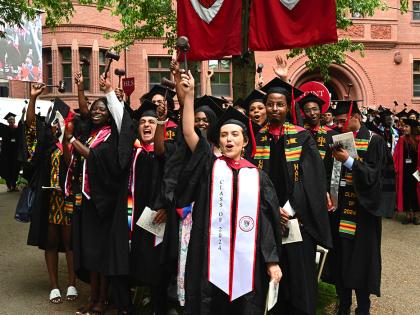Sousan Abadian, a fellow at MIT’s Dalai Lama Center for Ethics, has traveled as far as the Amazon River and the mountainous peaks of Peru seeking spiritual growth. “My most powerful retreats,” she reports, “have been those I’ve done in the natural world, sometimes in my own backyard, where I have basically sat for hours at a time, sometimes days.”
These meditations, practiced alone or with a group, have helped quiet her “inner dramas” and her active academic mind. (Abadian, A.M. ’87, M.P.A. ’88, Ph.D. ’99, focuses on the impact of collective trauma on indigenous peoples; see “Trail of Tears, and Hope,” March-April 2008, page 39.) “When we are so busy in daily life, we are not conscious of the other messages we get, particularly from our hearts and souls and bodies,” she asserts. “Retreats allow us to access and strengthen subtle capacities and to hear ourselves and others on a different level.”
As Abadian has discovered, one need not travel to exotic locales to turn inward. For individuals who want some time and space to reflect, away from the hubbub, New England offers a surprisingly wide array of sanctuaries and retreats, from those run by Buddhists and Sufis and traditional Western religious groups to others representing different kinds of spiritual or ethical organizations, such as Sirius, a regional offshoot of the Scottish Findhorn Foundation.
Most promote spiritual learning through quietude in a natural setting. Visitors are generally expected to respect an atmosphere focused on reflection, prayer, and worship, or even maintain strict silence. The degree of religious adherence varies; some retreats emphasize scriptural teachings and private consultation with spiritual advisers, while others focus on devotional practices related to meditation, ecological communion, yoga, or other mind-body exercises.
In the Buddhist tradition, retreats are considered “‘deeper practice’ that help us to reconfigure our sense of self and ourselves in relation to the world,” says Boston psychotherapist Christopher Germer, a clinical instructor in psychology in the department of psychiatry at Harvard Medical School and a practicing Buddhist.
A founding member of the Institute for Meditation and Psychotherapy (www.meditationandpsychotherapy.org), Germer has attended countless retreats and now leads them for fellow psychotherapists through both the institute and the Barre Center for Buddhist Studies (www.dharma.org/bcbs), in western Massachusetts. (He and Ronald D. Siegal, assistant clinical professor of psychology at HMS, have co-edited Wisdom and Compassion in Psychotherapy: Deepening Mindfulness in Clinical Practice, forthcoming from Guilford Press, which was inspired by a 2009 HMS conference on the subject attended by the Dalai Lama and scholars, scientists, and therapists from across the country.) “Mindfulness has become probably the dominant paradigm of psychotherapy,” he says. Those in the field attend retreats themselves to learn how to meditate and apply the practice to working with patients. “They also come to be refreshed and renewed—to manage fatigue,” he explains. “Caregivers need to care for themselves.”
Generally, people “in any denomination are entering a retreat to feel better,” Germer says. In his estimation, every retreat, regardless of its spiritual orientation, probably alters our sense of self—whether in relation to a specific struggle or source of grief, to the universe, to God, or as a means of loving and living more compassionately with others. “Just like spokes on a wheel, we all end up in the same hub; ultimately everyone gets to the same place through a committed practice,” he explains. “The question that may arise is: What is the best path? And the answer is: The path you are most committed to.”
Spiritual retreats are not spa vacations. They do not typically involve fluffy-towel pampering and pedicures, much less personal computers or electronic communications; many even prohibit books and music. Germer says silent retreats in particular raise the essential question: How do I abide my own mind? “As writer Anne Lamont says, ‘My mind is a neighborhood I try not to go into alone.’”
Entering into silence or quietude for even a few days, Abadian notes, shuts off the usual avenues of distraction: family and job duties, the Internet, household chores. She has spent formative time at The Abode, a Sufi retreat center in New Lebanon, New York, walking trails and sitting in silent meditation. “When you get rid of all your outer distractions,” she explains, “your inner distractions show up—and whatever emotions you have stuffed down and not dealt with tend to bubble to the surface: anger, sadness, frustrations. The processes suggested by your [retreat] guide are designed to move you through these emotions—to acceptance and greater clarity.”
Cambridge psychotherapists Susan and Bill Morgan recently began participating for the third year in an extensive silent meditation retreat at the Forest Refuge, a retreat for seasoned practitioners that is part of the Insight Meditation Society (www.dharma.org), a sister organization to the Barre Center for Buddhist Studies. The Morgans live in separate rooms but share silent meals and sit next to each other in the meditation hall, where she arrives every day at 4:30 a.m. By 6:15 a.m., there is chanting with fellow retreatants, then communal breakfast.
“The encouragement is to unplug from this world,” says Susan Morgan. Phone contact is discouraged, as are reading and writing: “You might take a few notes or read spiritual literature to stay focused,” she says. But mostly she meditates, walks, and chants. The goal is “to learn how to straddle that line between participant and observer all the time,” she says, “and learn how to meet all of experience with a certain amount of equanimity.”
The silence has already made her keenly aware of the daily barrage of mechanical and electronic noise and of advertisements, along with the compulsion to socialize. “I think there is an excess of idle chatter. People have a hard time being alone,” she says. “It’s powerful coming out of retreat and feeling more acutely the pulse, vibration, and the intensity of the world,” she says, “It is the speed, the aggression, and the bombardment of sensory stimuli that are most notable. You appreciate how much sensory stimulation we are experiencing just trying to get through the day.”
In 2012 Morgan will return to Cambridge only once every three months to see clients in her private psychotherapy practice. She is confident that they will benefit from her experience. Silent retreat, she says, makes one cognizant of impermanence and of the constant passage of time. “You are aware of mortality every day; that is a huge part of the retreat experience. ‘If this was your last day on earth, how do you want to live it? Where do you want to point your boat? Do you even know?’” are questions that keep arising. She has found that the meditation practices help “cultivate wise, caring attention in life. I am able to stay present with what is happening and not be swept under by the waves of emotion and reactivity. Mindfulness creates a space that allows us to make more skillful and compassionate choices as we move through the world and interact with others. The process is about discovering how to use this one life well.”
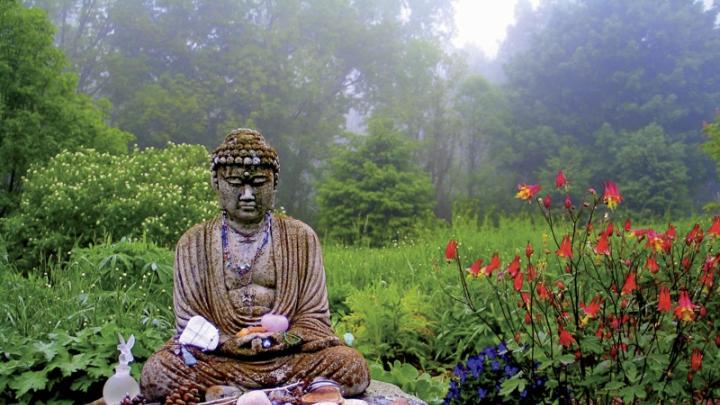
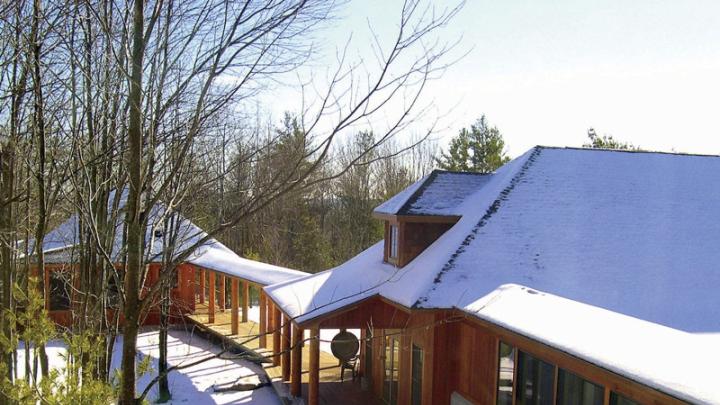

 ,
,
 ,
,
 ,
,
 ,
,
 ,
,
 ,
,
 ,
,

 ,
,
 ,
,
 ,
,
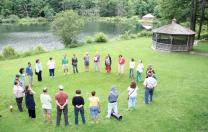 ,
,
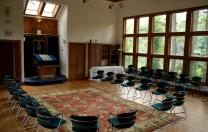 ,
,
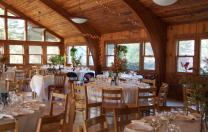 ,
,
 ,
,

 ,
,
 ,
,
 ,
,
 ,
,
 ,
,
 ,
,
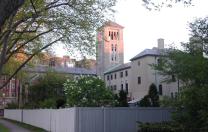 ,
,

 ,
,
 ,
,
 ,
,
 ,
,
 ,
,






